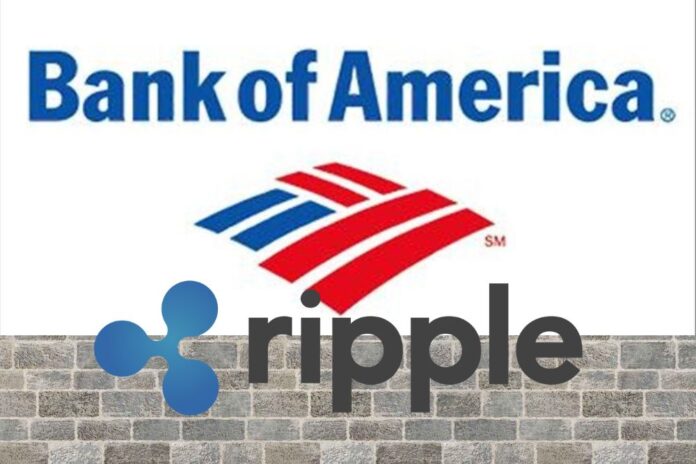In a recent report on payment innovation in the Asia Pacific (APAC) region, Bank of America (BoA), a major US financial institution, recognized Ripple for its achievements in cross-border payments. The report sheds light on APAC’s growing payment industry and the rise of new technologies.
According to the report, BoA is interested in Ripple’s potential to speed up cross-border transactions using blockchain technology. RippleNet and On-Demand Liquidity (ODL) have been praised for their robustness and effectiveness in cross-border payments. This recognition from established financial giants like BoA strengthens Ripple’s position in this market.
Read Also: Bank of America to Leverage Ripple ODL Services Once XRP Lawsuit Ends, Garlinghouse Affirms
While Ripple has been mentioned in previous analyses by Deutsche Bank, the Faster Payment Council, and the International Monetary Fund, the BoA analysis is more cautious. Venkat Es, BoA’s Head of Treasury Products for APAC, highlighted the growing popularity of the SWIFT Global Payment Innovation (GPI) system as a preferred solution for tracking and tracing cross-border payments. SWIFT GPI promises to make international payments faster, more transparent, and easier to track.
#Ripple mention in Bank of America report (partner), "Harnessing Payments Innovation in APAC." Notes SWIFT gpi has limited Ripple's impact. Interviewof BofA Head of Treasury Products, Asia Pacific, Global Transaction Services.https://t.co/5ni4SPcGo4 pic.twitter.com/HjwVI7sYa8
— WrathofKahneman 🪝 (@WKahneman) July 6, 2023
Although some members of the XRP community have disputed this claim, others believe it to be true. The GPI system has gained widespread usage due to its powerful features and its association with SWIFT.
In contrast, Ripple’s offerings have been limited as a result of legal pressure from the Securities and Exchange Commission (SEC) lawsuit. This legal battle has slowed Ripple’s adoption rate and prompted some institutional clients, such as MoneyGram, to switch to competing products like Stellar.
While the reasons for the end of the MoneyGram and Ripple partnership are unknown, it occurred three months after Ripple was sued by the SEC. Despite these obstacles, Ripple is still recognized for its contributions to cross-border payments, and its technology has promise for the future of the payment industry.
Read Also: Bank of America Warns: A “Recession Shock” That Could Send Cryptos to New Highs Is Coming
Ripple’s Road to Recovery: Overcoming Challenges and Building Trust
Despite the losses incurred by the legal proceedings with the SEC in the United States, Ripple is determined to overcome the challenges and regain industry trust. The company has taken aggressive steps to address regulatory concerns and to reaffirm its commitment to compliance and transparency.
Ripple has been actively working with regulatory bodies and industry experts to navigate the ever-changing landscape of digital assets and blockchain technology. Through these collaborations, Ripple hopes to establish clear standards and frameworks that support innovation while ensuring regulatory compliance.
Ripple has also emphasized its commitment to its customer base and ongoing relationships. Ripple aims to restore trust and demonstrate the value it can offer to cross-border payments by demonstrating the effectiveness and reliability of its technology.
The outcome of the legal proceedings is likely to have an impact on Ripple’s future trajectory. However, the company remains steadfast in its goal of revolutionizing the global payment sector through technology-driven solutions.
Follow us on Twitter, Facebook, Telegram, and Google News



